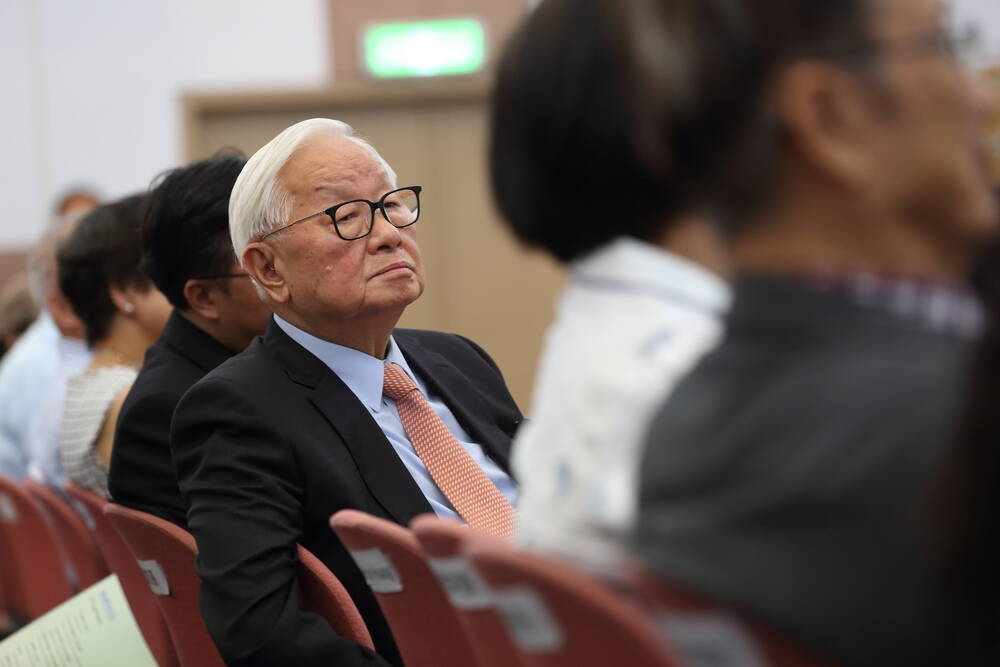Globalization Is Over, And It'll Cost You, According To TSMC Founder

Globalization is over, at least for the chip industry, and this will mean higher chip prices, according to semiconductor contract manufacturer giant TSMC. Despite this, the company's founder said he supports US actions to slow the development of China’s chip technology.
The Taiwanese chip company is caught up in the ongoing semiconductor battle between the superpowers, where the US is trying to prevent China from getting access to cutting edge technology that might be used by its burgeoning military. At least, that is the reason given.
At an event hosted by Taiwan's CommonWealth Magazine in Taipei, retired TSMC founder Morris Chang said that efforts to contain China were leading to a split in the global supply chain that would likely increase prices and could have an effect on chip availability.
"There's no question in my mind that, in the chip sector, globalization is dead. Free trade is not quite that dead, but it's in danger," Chang said.
This is a sentiment that 91-year-old Chang has expounded on before, using very similar language at a ceremony last December to mark the start of construction for TSMC's chip manufacturing site in Arizona.
“Globalization is almost dead and free trade is almost dead. A lot of people still wish they would come back, but I don't think they will be back,” he said at the time.
But despite this, the semiconductor industry pioneer said he backs the approach Washington has taken. "The US started their industrial policy on chips to slow down China's progress. I have no quarrel and I support it," Chang said.
China’s semiconductor industry still lags behind that of Taiwan by about five or six years in terms of technology, according to Chang.
Taiwan continues to dominate worldwide semiconductor manufacturing, with figures released last year indicating the island nation controlled 48 per cent of the foundry market and had 61 per cent of the global capacity for making chips with a 16nm process node or more advanced.
It isn’t perhaps surprising that Taiwan should welcome US efforts to halt the advance of China’s rival industries, although the trade sanctions are a double-edged sword as they are cutting off access to the huge Chinese market for Taiwanese chipmakers such as TSMC.
Chang also had no illusions the US is acting largely in its own interest in pursuing its China policy, claiming that when Washington talks of “friend-shoring” high technology manufacturing, it does not include Taiwan because US officials have openly stated they cannot continue to be dependent on it for chips.
A former national security advisor to the Trump administration also said this week that the US would destroy Taiwan’s semiconductor plants, in order to prevent them from falling into China‘s hands in the event that Beijing invaded in a move to reunite Taiwan with the mainland.
It has already been noted that US efforts to isolate China are leading to an undoing of the distributed global supply chain infrastructure that has built up over the past few decades.
Richard Gordon, practice vice president for semiconductors and electronics at Gartner, told us earlier this year the outcome may be a world divided into China-centric and US-Europe-centric networks of supply chains and a greater self-reliance within those blocks.
Meanwhile, TSMC is also discussing subsidies with officials for the German state of Saxony about a new fabrication plant the chip giant is aiming to build there, despite publicly stating in December that it had no plans to site any facilities in Europe.
The plans for the new fab are now said to be at an advanced stage, and focused on government subsidies to support the investment, according to Reuters, which cites anonymous sources familiar with the matter.
- The US would sooner see TSMC fabs burn than let China have them
- Netherlands joins US blockade of Chinese chip industry
- China's government re-orgs Sci-Tech ministry to advance self-reliance push
- White House ban on US chip cash going into China ruffles South Koreans
TSMC is not the only chip manufacturer playing this game; Intel is also chasing subsidies for a new mega-fab it wants to build at Magdeburg in eastern Germany, and it was revealed this month Intel wants more funding on top of the €6.8 billion ($7.3 billion) already agreed.
The subsidies for both semiconductor plants are likely to come from a mix of local government, federal government and EU funding, especially from the European Chips Act that has been proposed with this kind of purpose in mind.
Officials from Saxony discussed the Chips Act with EU Commission President Ursula von der Leyen at a recent meeting in Brussels, according to its state government. ®
From Chip War To Cloud War: The Next Frontier In Global Tech Competition
The global chip war, characterized by intense competition among nations and corporations for supremacy in semiconductor ... Read more
The High Stakes Of Tech Regulation: Security Risks And Market Dynamics
The influence of tech giants in the global economy continues to grow, raising crucial questions about how to balance sec... Read more
The Tyranny Of Instagram Interiors: Why It's Time To Break Free From Algorithm-Driven Aesthetics
Instagram has become a dominant force in shaping interior design trends, offering a seemingly endless stream of inspirat... Read more
The Data Crunch In AI: Strategies For Sustainability
Exploring solutions to the imminent exhaustion of internet data for AI training.As the artificial intelligence (AI) indu... Read more
Google Abandons Four-Year Effort To Remove Cookies From Chrome Browser
After four years of dedicated effort, Google has decided to abandon its plan to remove third-party cookies from its Chro... Read more
LinkedIn Embraces AI And Gamification To Drive User Engagement And Revenue
In an effort to tackle slowing revenue growth and enhance user engagement, LinkedIn is turning to artificial intelligenc... Read more

